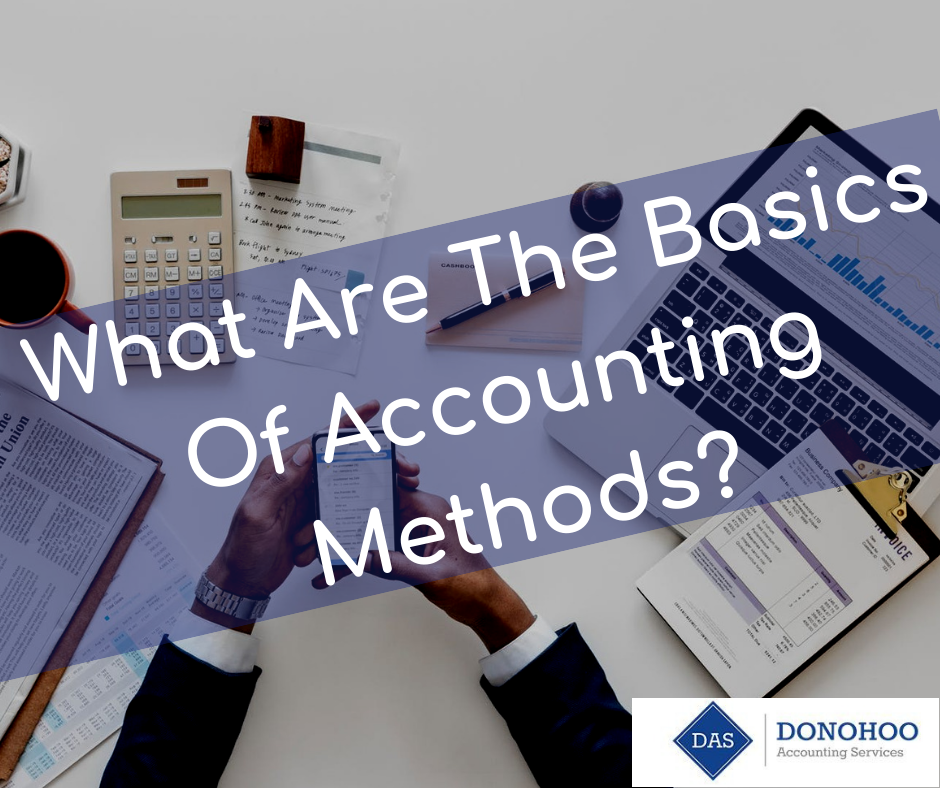What Are The Basics Of Accounting Methods
What are accounting methods? Accounting methods help businesses keep their cash records and assist in preparing money reports by utilizing two fundamental methods of record-keeping for cash. These two methods are cash-basis and accrual basis accounting. These methods both have their own distinctive advantages of keeping corporate record keeping which help keep track of money coming an and out of the business. Donohoo Accounting knows what are the two types of accounting methods and how to utilize the for your business.

CASH-BASIS ACCOUNTING
What is cash-basis accounting? Corporations recording expenses in financial accounts when the cash is laid out, and they book revenue when they actually hold the cash in their hot little hands or, more likely, in a bank account. For example, if a plumber completed a project on December 30, 2018, but doesn’t get paid for it until the owner inspects it on January 10, 2019, the plumber reports those cash earnings on her 2018 tax report. In cash-basis accounting, cash earnings include checks, credit-card receipts, or any other form of revenue from customers.

ACCRUAL ACCOUNTING
Does your company use accrual accounting? This method is when you record revenue when the actual business is completed ex. (is when the completed amount of work that was stated in a contract agreement between the company and its client), not when it obtains the cash. The company records income when it produces it, even if the customer hasn’t paid yet. For example, a plumbing contractor who uses accrual accounting records the revenue earned when the job is completed, even if the client hasn’t paid the final invoice yet. Expenditures are handled in the same way.

BASIC ACCOUNTING TERMS
- Equity: The net worth of your company. Also called owner’s equity or capital. Equity comes from investment in the business by the owners, plus accumulated net profits of the business that have not been paid out to the owners. It essentially represents amounts owed to the owners. Equity accounts are balance sheet accounts.
- Assets: Things of value held by your business. Assets are balance sheet accounts. Examples of assets are cash, accounts receivable and furniture and fixtures.
- Liabilities: What your business owes creditors. Liabilities are balance sheet accounts. Examples are accounts payable, payroll taxes payable and loans payable.
- Debits: At least one component of every accounting transaction is a debit amount. Debits increase assets and decrease liabilities and equity.
- Credits: At least one component of every accounting transaction is a credit amount. Credits increase liabilities and equity and decrease assets.
While all these terms may seem a foreign language or a little overwhelming they can keep your business finances in order and make tax time a lot easier when it comes time to file. Making the everyday accounting run smoothly can be done with Donohoo Accounting Services. Call us today for your free evaluation and let us take the stress out of your day-to-day money functions.





